News
INEC reviews logistics, roles of officials in 2023 elections
Published
10 months agoon
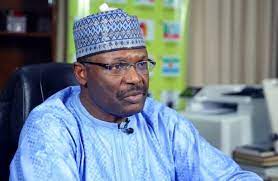
The Independent National Electoral Commission (INEC) has commenced the review of the Commission’s front line officials, the Electoral Officers (EOs), including transporters who provided logistics during the 2023 general elections.
The INEC Chairman, Prof. Mahmood Yakubu, at the post-election meeting with Electoral Officers at Ladi Kwali Hall of the Abuja Continental Hotel on Wednesday, recalled that at the meeting with the Resident Electoral Commissioners (RECs) held two weeks ago, the Commission announced the commencement of the review of the 2023 General Election.
According to him, “this was followed a week later by State level review meetings nationwide involving our regular staff and ad hoc officials.
“Today, we commence a more focused engagement at national level with the Commission’s front line officials, the Electoral Officers (EOs).
“We also considered it appropriate to interface with transport providers to review logistic arrangements by inviting the leadership of the National Union of Road Transport Workers (NURTW), the National Association of Road Transport Owners (NARTO) and the Maritime Workers’ Union of Nigeria (MWUN)”.
Yakubu noted that the success of any election primarily depends on the ability to deploy personnel and materials to various locations. He said that in Nigeria, “this involves the biggest logistic deployment the nation periodically undertakes across vast terrains and often difficult topography”.
The INEC chairman disclosed that this has been a perennial challenge over time but it is now compounded by issues of infrastructure and insecurity.
He stated that however, the Commission has to deploy personnel and materials not only for Election Day activities but electoral activities in general covering the period before, during and after the elections. He added that many of these activities such as the Continuous Registration of Voters (CVR), monitoring of party primaries for the nomination of candidates for the election and the procurement and deployment of sensitive and non-sensitive materials must be accomplished ahead of the election otherwise critical Election Day processes will be impossible.
Yakubu said that the Wednesday meeting, therefore, provided an opportunity to interact on a wide range of themes that covering of which ten critical areas are highlighted for discussion:
i. General State of Preparedness for the 2023 General Election;
ii. Voters Registration Process and the associated issues of Adequacy of Timing, Display of Voter Register for Claims and Objections, Clean-up of Voter Register, PVC Collection etc.;
iii. Recruitment, training, deployment and remuneration of ad hoc staff, including specific issues of mode of recruitment, conduct of training, timing, adequacy, effectiveness and utility of e-learning training platforms, and strategy for efficient payment of ad hoc staff.
iv. Matters arising from the implementation of the expansion of voter access to Polling Units;
v. Receipt and deployment of election materials;
vi. Technology during elections including the various portals for nomination of ad hoc staff, candidates, accreditation of observers, media, polling/collation agents as well as voter registration, accreditation and result management;
vii. Election security;
viii. Election Day processes with reference to:
i. Forward logistics in terms of transportation of personnel and delivery of materials to Registration Area Centres (RACs) and Polling Units (PUs), including specific issues of engagement with transport unions and the implementation of State-level obligations; and
ii. Reverse logistics and movement of personnel and retrieval of field assets.
ix. Inventory of election materials, particularly the status and storage of reusable assets such as ballot boxes, voting cubicles and electric power generators etc.; and
x. Physical conditions of storage and other immovable facilities.
Yakubu maintained that in line with the Commission’s policy, when the review engagements are completed, a comprehensive report will be prepared.
“I, therefore, urge you to lend your wealth of experience to the discussions in order to identify areas of strengths and weaknesses for immediate improvement in forthcoming elections, especially, the three off-cycle Governorship elections in Bayelsa, Imo and Kogi States scheduled to hold on Saturday 11th November 2023.
“I want to assure Nigerians in the next two weeks, the Commission plans to hold more engagements with internal and external stakeholders, including political parties, civil society organisations, the media and security agencies,” The INEC chairman stated.
You may like
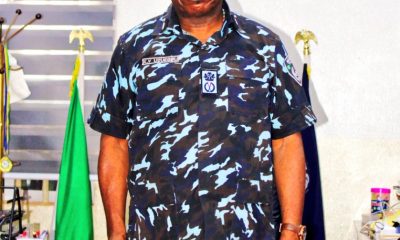

CP orders massive deployment of Police Operatives, resources for bye elections in Enugu
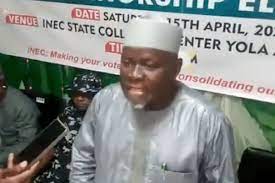

INEC REC in Adamawa flees to Niger Republic after announcing illegal result
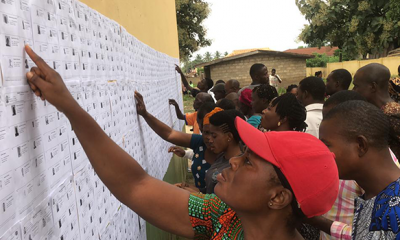

INEC lists seven voting procedures in Bayelsa, Imo, Kogi governorship elections
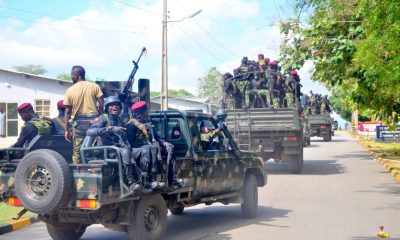

Army demonstrate ‘Show of Force’ for peaceful election in Kogi
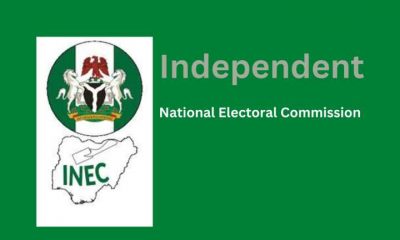

INEC beefs up security alert for staff


Tribunal sacks APC senator, declares Natasha Akpoti winner
Trending

 Inspirational1 week ago
Inspirational1 week agoPastor Chris Oyakhilome: A Healing Minister Dedicated to Enhancing Public Health

 Featured7 days ago
Featured7 days agoGov, Abiodun appoints Chess master, Onakoya sports ambassador

 Crime7 days ago
Crime7 days agoVandalism: Osun water corporation appeals to residents
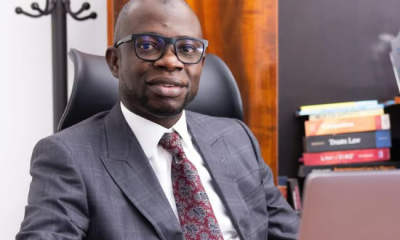
 Featured7 days ago
Featured7 days agoOsun PDP chieftain, Abbas resigned from party

 Editorial3 days ago
Editorial3 days agoGovernor Obaseki Increases Minimum Wage to N70,000 in Edo State

 Business5 days ago
Business5 days agoZenith Bank shareholders approve Holdco structure

 Business2 days ago
Business2 days agoNNPC says fuel queues to be cleared by Wednesday

 Agribusiness1 day ago
Agribusiness1 day agoGMO crops will render Africa farmers more reliant on multinational corporations

